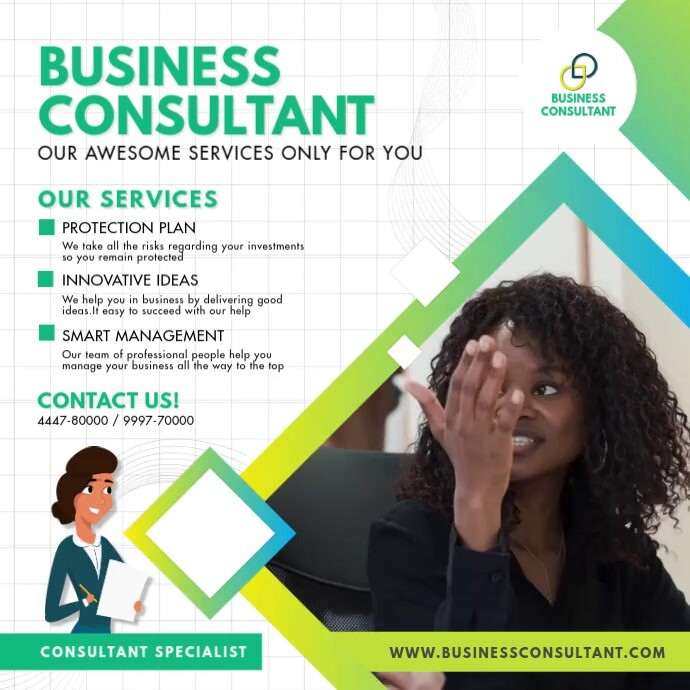How do you measure a business consultant’s success?
Expertise: consultants bring specialized knowledge and experience to address specific business challenges.
 Objectivity: they offer an unbiased perspective, helping identify and solve issues without internal biases. Efficiency: consultants can streamline processes and strategies to improve overall efficiency and productivity. Cost savings: their insights can lead to cost reductions and better resource allocation. Strategic growth: consultants can assist in developing and executing growth strategies to expand your business successfully.
Objectivity: they offer an unbiased perspective, helping identify and solve issues without internal biases. Efficiency: consultants can streamline processes and strategies to improve overall efficiency and productivity. Cost savings: their insights can lead to cost reductions and better resource allocation. Strategic growth: consultants can assist in developing and executing growth strategies to expand your business successfully.
Hiring a consultant may assist companies in improving their performance and making the required adjustments to attain success. Business consultants aid organizations in overcoming hindrances, increasing income, and expanding. So, it’s crucial that always consult about your business from professionals like bsbcon. Com , which will guide you in the best possible way. It’s critical to deal with business advisors with past expertise and success with businesses similar to yours. You may be charged by the project or by the hour, or you may be required to pay daily or monthly retainers. This post is for small company owners and entrepreneurs contemplating hiring a business consultant.
Strategy and management consultants
A business consultant provides professional advice to organizations to improve their processes and increase efficiency. They often work closely with senior management teams to assess areas for improvement and recommend ways to improve them. Using their industry expertise, they help companies create new products, services, and processes that help them achieve their goals.
 They can also help with risk and compliance assessments and help companies improve their business development strategy. Business consultants can work for larger consulting companies or as freelancers. Their job responsibilities include reviewing financial statements and meeting with company executives to identify areas for improvement. They may also analyze market data and establish more effective employee training and onboarding methods.
They can also help with risk and compliance assessments and help companies improve their business development strategy. Business consultants can work for larger consulting companies or as freelancers. Their job responsibilities include reviewing financial statements and meeting with company executives to identify areas for improvement. They may also analyze market data and establish more effective employee training and onboarding methods.
Management consultants often work with the senior management team, helping them to plan the future of the organisation and work out how to keep core values intact, despite expansion and change. There is frequently a significant strategic planning element to the work of management consultants. They may assist in developing strategy at the corporate level, or simply developing a strategy for the delivery of a particular project. Some key characteristics of management consultants include: they often play a key role in risk management. Whilst there is a need to reduce risk at an operational level, management consultants will tend to concentrate on the risks a business might face at a corporate level.
1. Find the right business consultant.
Business consultants identify areas of improvement or are hired to implement or facilitate specific company initiatives. For example, a business may hire a consultant to help find weaknesses in its sales processes or develop a strategy for improving customer engagement with its products or services. The consultant may develop and implement a new sales process or execute a customer satisfaction feedback system, such as net promoter score.
While a business coach is more focused on providing guidance, a business consultant provides specific solutions to your specific challenges. Think of a consultant as a “sleeves-rolled-up” subject matter expert. There are different consultants for different needs a business might have—sales, marketing, hr, production. If you need a specialist, you won’t have to look too far to find one for just about any facet of your business. At this point, you might be asking, “coaches help with those things too. Tell me why i would need a consultant instead?” conceptually, the core difference lies in what each practitioner is working on.
Being able to recognize and develop solutions to problems is something an experienced business consultant can provide a small business. The discovery phase is the first step in business consulting. This is when your consultant, like glass jacobson, will learn everything they need to know about your business. This may include an extensive review of your accounting and tax information, in-depth conversations with the owners and employees, and reading the company’s materials—both internal and external communications. Once this is finished, they will evaluate the situation and identify your business’s strengths and weaknesses, along with any current or potential problems.
